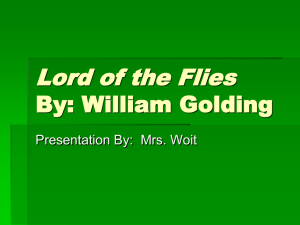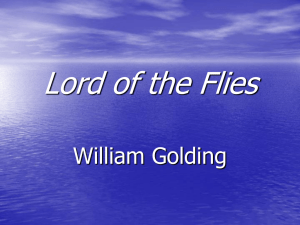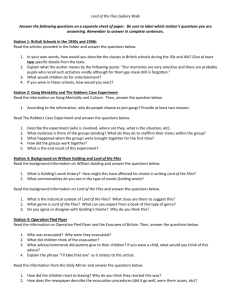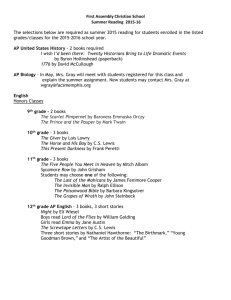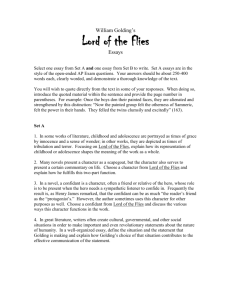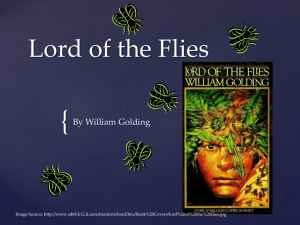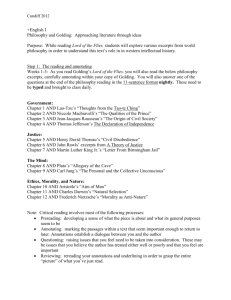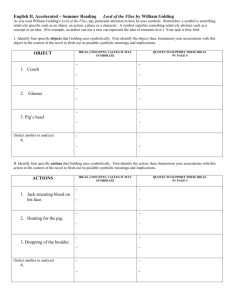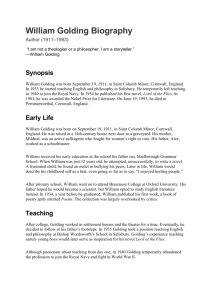The life of William Golding
advertisement
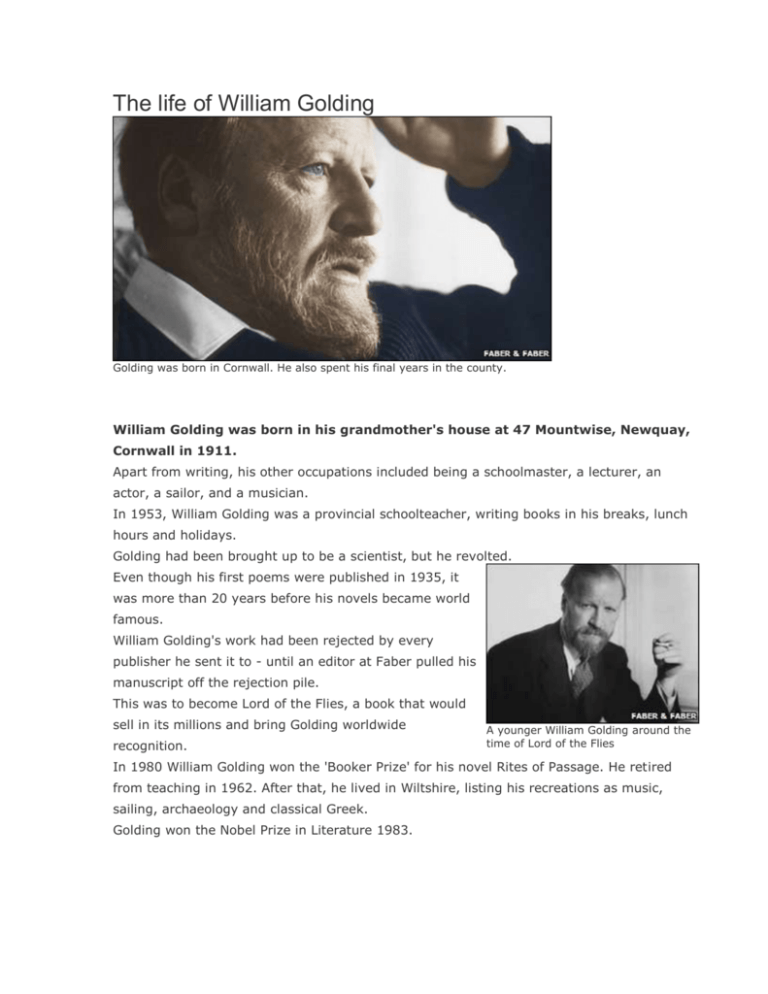
The life of William Golding Golding was born in Cornwall. He also spent his final years in the county. William Golding was born in his grandmother's house at 47 Mountwise, Newquay, Cornwall in 1911. Apart from writing, his other occupations included being a schoolmaster, a lecturer, an actor, a sailor, and a musician. In 1953, William Golding was a provincial schoolteacher, writing books in his breaks, lunch hours and holidays. Golding had been brought up to be a scientist, but he revolted. Even though his first poems were published in 1935, it was more than 20 years before his novels became world famous. William Golding's work had been rejected by every publisher he sent it to - until an editor at Faber pulled his manuscript off the rejection pile. This was to become Lord of the Flies, a book that would sell in its millions and bring Golding worldwide recognition. A younger William Golding around the time of Lord of the Flies In 1980 William Golding won the 'Booker Prize' for his novel Rites of Passage. He retired from teaching in 1962. After that, he lived in Wiltshire, listing his recreations as music, sailing, archaeology and classical Greek. Golding won the Nobel Prize in Literature 1983. William Golding: The Man Who Wrote Lord of the Flies is a new biography which dips into items that have never before been made public. Through hundreds of letters, unpublished works and Golding's private diaries, John Carey draws a revelatory and definitive portrait of an extraordinary man. He reveals a Golding as a many-sided figure: a war-hero, a reclusive depressive who considered himself a 'monster', a family man, a victim of fears and phobias who battled against alcoholism, and a writer who trusted Tullimaar House in Cornwall was the home of William Golding in his final years the imagination above all things. When William Golding was awarded the Nobel Prize for Literature in 1983, the Nobel Foundation cited: "His novels which, with the perspicuity of realistic narrative art and the diversity and universality of myth, illuminate the human condition in the world of today." Golding wrote several books during his life time, but its fair to say Lord of the Flies totally over-shadowed all his other novels. He even wrote a travel book about Egypt. At the time of his death, William Golding left a journal of more than two million words, which included his daily thoughts over a 20 year period. Biographer John Carey will be coming to Cornwall in late January to reveal more about William Golding. John's talk is part of the University of Exeter's annual William Golding Memorial Lecture which will be held at the Tremough Campus on Tuesday 26 January at 6pm. The William Golding Lecture is free of charge and open to members of the public, who are requested to register via email wgoldinglecture@exeter.ac.uk
